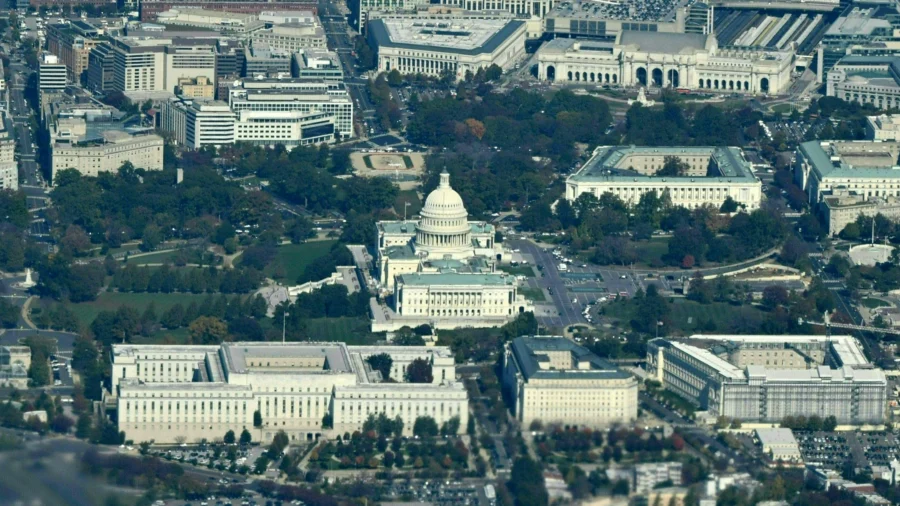After weeks of negotiations and delays, the Senate passed its first 2024 spending package on Nov. 1.
The “minibus” joined three appropriations bills providing funding for military construction and the departments of Veterans Affairs (VA), Agriculture, Transportation, and Housing and Urban Development.
The Senate, after voting on a slew of amendments, passed the measure in an 82–15 vote.
“Today, months of hard work paid off,” Senate Appropriations Committee Chair Patty Murray (D-Wash.) said following the vote.
“What we have done here—finding common ground to produce reasonable, bipartisan bills—is not just a template, it is the only way to get our jobs done in a divided government,” she added. “There is a clear lesson from the last few months here in Congress and it is that we must work together, not retreat to extreme, partisan corners.”
The minibus will need the approval of the House before it can head to President Joe Biden’s desk.
Senate Majority Leader Chuck Schumer (D-N.Y.), speaking before the vote, encouraged House Republicans to recognize that “bipartisanship is the way to go” to complete the appropriations process.
“The American people won’t support a futile exercise of passing partisan extremist legislation that has no chance of becoming law, which is what the House is doing right now,” Mr. Schumer contended, accusing House Republicans of loading their spending bills with “poison pills.”
The House, for its part, has chosen a different approach to the appropriations process, opting to pass individual spending bills rather than packaging them together.
On Oct. 26, the House passed its first appropriations bill under newly elected Speaker Mike Johnson (R-La.), which provided funding for energy and water development. The House has also approved two other appropriations bills—the Military Construction-Veterans Affairs and Defense spending bills.
Fiscal year 2024 officially began on Oct. 1. On Sept. 30, to avert a government shutdown, Congress passed a continuing resolution to extend federal funding while negotiations continued.
Congress now has until Nov. 17 to pass all 12 appropriations bills or another continuing resolution to prevent a shutdown.
Now, with the clock ticking down, both chambers appear to be locked in a competition to see which will fulfill its obligations first.
Mr. Johnson has said he hopes it will be the House so Republicans can negotiate “from a position of strength.”
“The only way to secure that position is for the House to have passed all 12 of our appropriations measures,” he noted in an Oct. 23 letter to his Republican colleagues prior to his election as speaker.
“I am confident we can work together to accomplish that objective quickly, in a matter that delivers on our principled commitments to rein in wasteful spending, and put our country back on a path to fiscal responsibility,” he added.
Outlining a timetable for the appropriations process going forward, Mr. Johnson targeted passing three spending bills this week and two each for the next two weeks. As of Nov. 1, the House has passed six of the 12 annual spending bills.
He also proposed passing an additional continuing resolution extending government funding through either Jan. 15 or April 15—“based on what can obtain Conference consensus”—if Congress fails to meet its Nov. 17 deadline.
That way, he contended, the Senate would not be able to “jam the House with a Christmas omnibus.”
Jackson Richman and Lawrence Wilson contributed to this report.
From The Epoch Times

